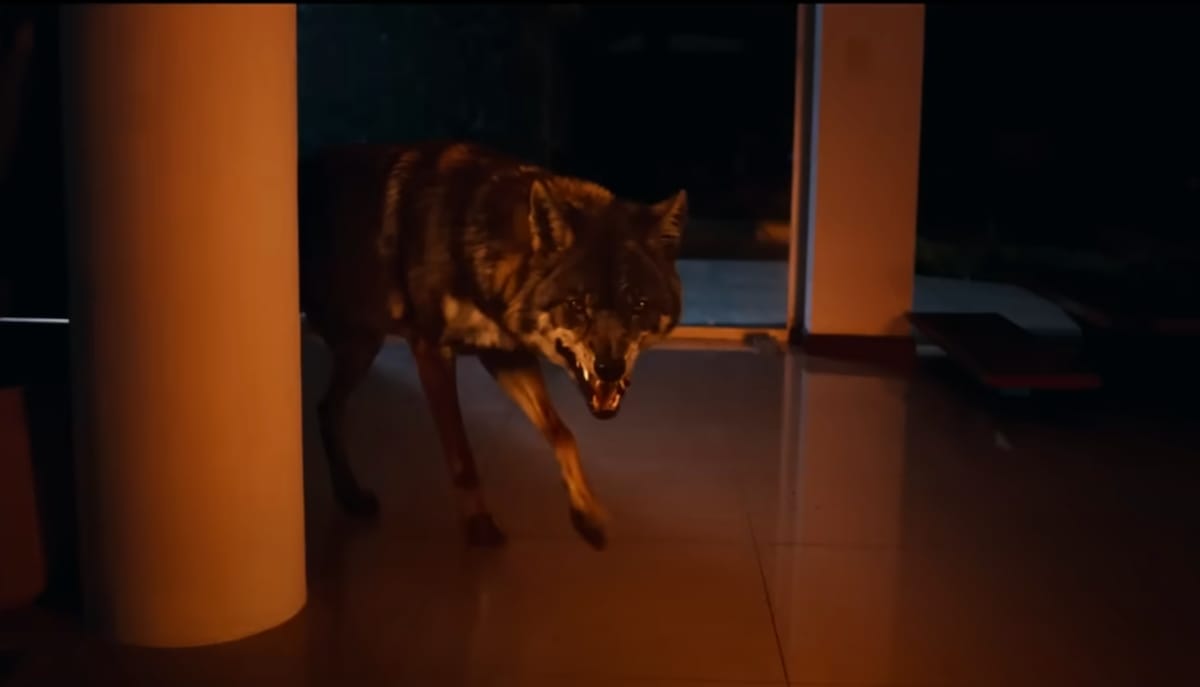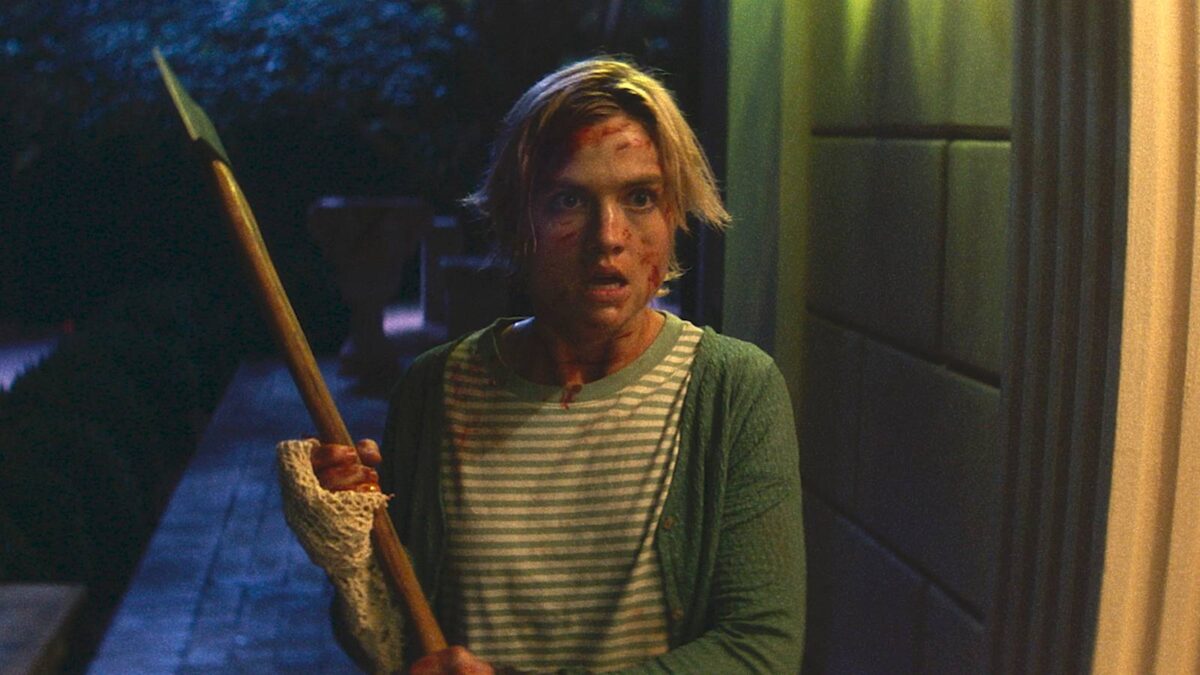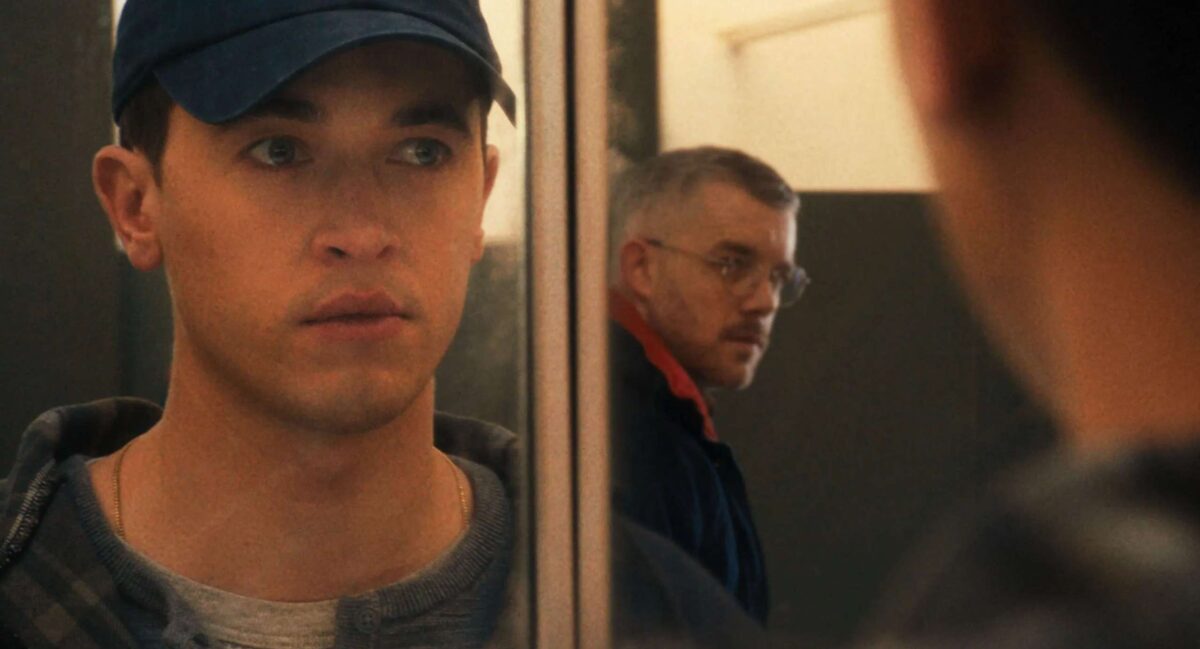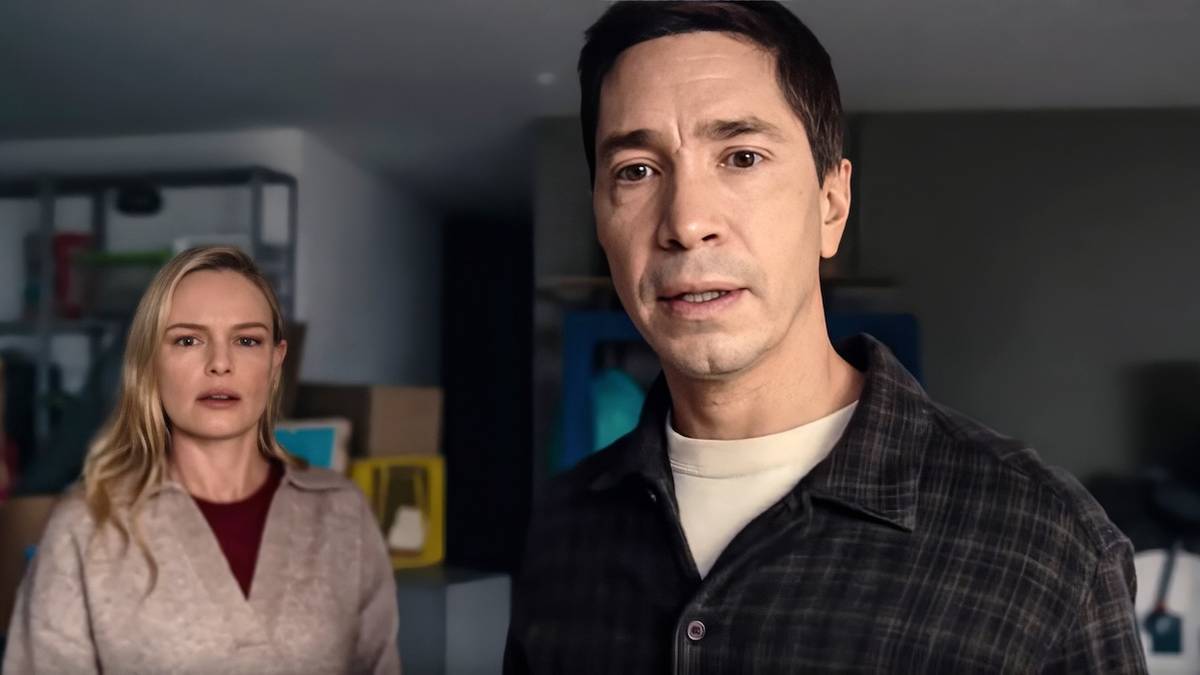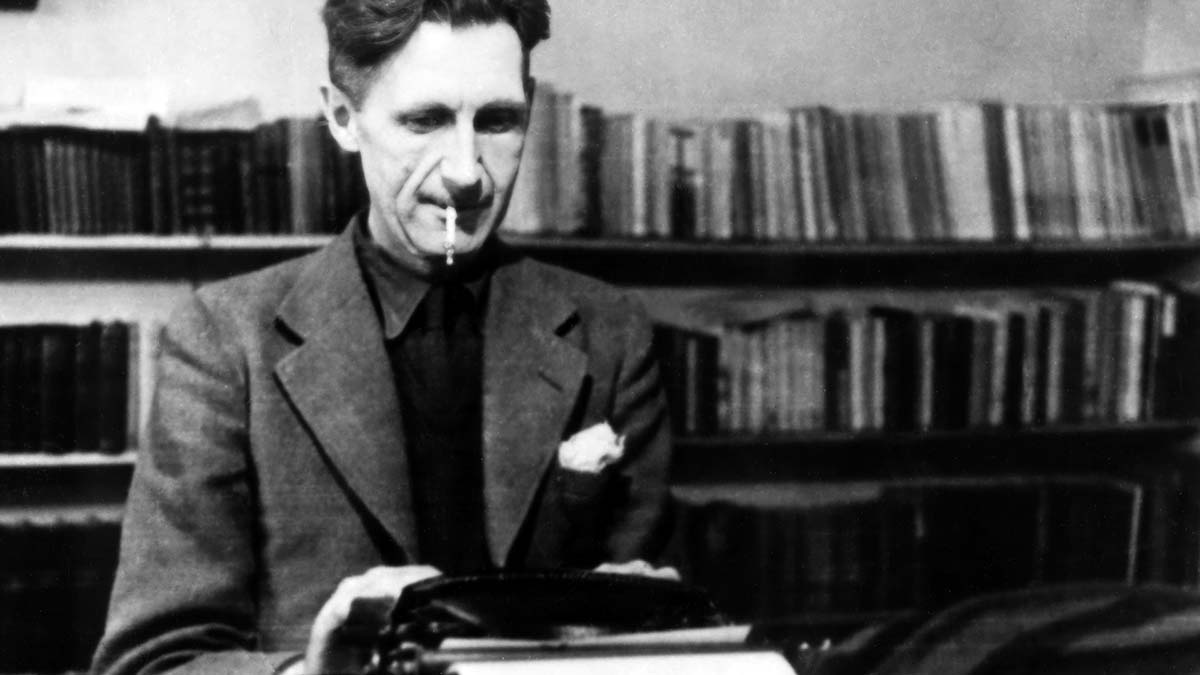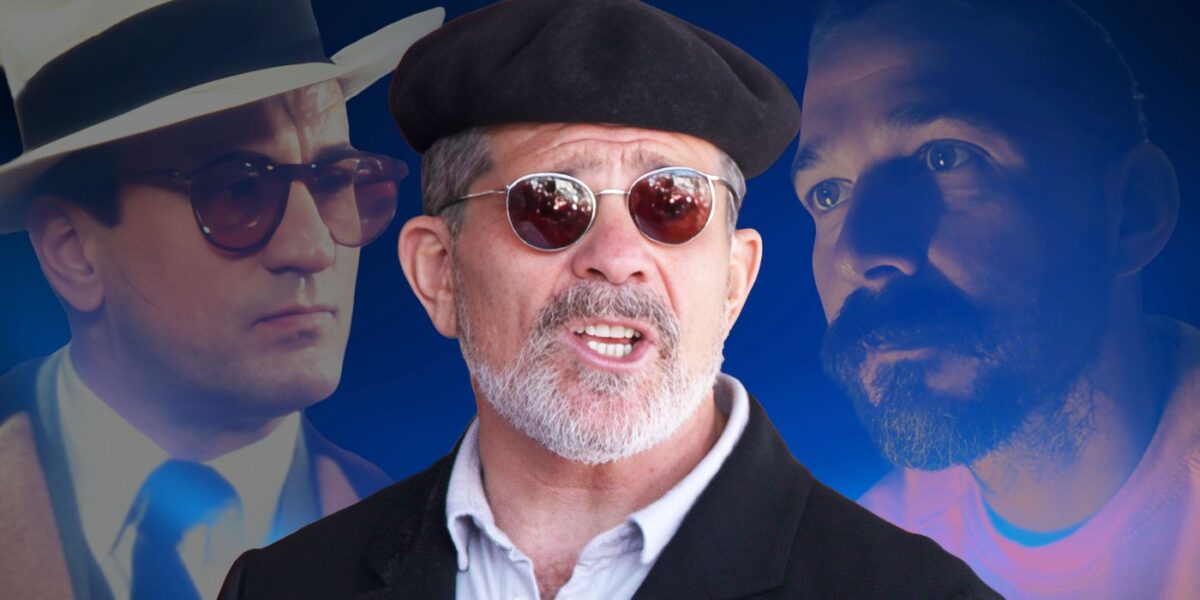
David Mamet Revisits His Storied Career From ‘Glengarry Glen Ross’ to ‘Henry Johnson’
May 9, 2025
Summary
Collider’s Steve Weintraub chats with David Mamet about his upcoming movie, Henry Johnson.
Mamet discusses working with star Shia LaBeouf, saying he is “crazy about him.”
Mamet also talks about projects, past and present, including the idea of a Glengarry Glen Ross sequel, The Prince, two books, and more.
David Mamet is one of the true greats of his industry. A Pulitzer Prize-winning author, playwright, and filmmaker, among many other strings to his bow, Mamet stands tall as one of America’s greatest writers, with his every word flowing through the thoughtful stream of genius in his mind. Known for his work on the likes of Glengarry Glen Ross, The Untouchables, Ronin, House of Games, and other critically acclaimed titles, Mamet still continues to produce high-quality work 55 years on from his first, and certainly shows no signs of slowing down.
His latest film project, Henry Johnson, is an adaptation of Mamet’s 2023 play of the same name. The movie stars Shia LaBeouf as Gene, Evan Jonigkeit as the titular Henry Johnson, Chris Bauer as Mr. Barnes, and Dominic Hoffman, and has been both written and directed by Mamet, in only his eleventh such film venture. Ahead of the movie’s unconventional release, Collider’s Steve Weintraub sat with Mamet to discuss the upcoming project, as well as many of his greatest ventures, his writing process, the possibility of a return to Glengarry Glen Ross, and more.
David Mamet Has Achieved Almost Everything in His Storied Career
“I once had the privilege of telling Bobby DeNiro to go fuck himself.”
Image via Triumph Films
COLLIDER: I’ve been a fan of your work for a long time. I’ll just get started with the most important question up front. With all the things you’ve done and all the recognition, where do you rank being yourself on The Simpsons on that scale?
DAVID MAMET: That one was certainly the most important thing that ever happened to me. I mean, the Nobel Prizes, we know it’s bought and paid for, and they’re going to give it to anybody who shows up with 25 bucks and a paper bag, and will put out for half an hour on the couch. So much for that. But for The Simpsons, you really have to earn it.
100%. I’m a huge fan of The Untouchables. Going back in time, is there anything that you think might surprise people to learn about the making of the movie that isn’t common knowledge?
MAMET: I once had the privilege of telling Bobby DeNiro to go fuck himself on that movie. We did four or five films together, by the way, and I’m very thrilled to have worked with him, but he was asked to do the part of Al Capone, and he called me up, they were shooting it in Canada, and he said, “I got a question about the script.” I said, “Ask your director, don’t ask me.” So he said, “No, I am asking you.” I said, “Wait a second. Did you read the script before you said yes?” He said, “Yeah.” I said, “Well, why did the script suddenly get worse because they’re paying you $2 million to do this stupid fucking thing?” So, we didn’t speak for a number of years, and then we all kissed rings, and he said, “I’m so sorry,” and I said, “I’m so sorry.” Today, we’re the best of friends. We’re supposed to go miniature golfing this afternoon.
It’s amazing what success does. It buries a lot of hatchets.
Related
Brian De Palma’s ‘The Untouchables’ Almost Got an Al Capone Prequel
Just wait until you hear who De Palma wanted for the leads.
I’m also a huge fan of Ronin. I love that movie. The script is great, but I think it was also John [Frankenheimer] who elevated the film with these incredible car chases. I’m not sure if that was on the page. What was your reaction when you finally saw what John had done with your words?
MAMET: I thought he did a great job with it. It wasn’t just the words. The words are bullshit, in any case. He really understood the structure of the movie. He’s a terrific director, and the car chase was great because he’s a car guy. But here’s the thing, one cannot write a car chase. Whatever you write, it’s going to be worked out on the set with the coordinator and the director. One cannot write a love scene because it’s going to be worked out on the set. But a lot of people made a lot of money on their ability to “write action,” and there isn’t any such thing.
You’ve worked on countless projects. What do you think actually went through the most revisions in the editing room, or changes that you didn’t expect?
MAMET: Well, Hannibal, because I wrote a script for those two guys, they threw it out, someone else wrote a script, and they put my name on it. So, I didn’t expect that.
I wouldn’t expect that either.
David Mamet Believes Filmmaking Enhances His Plays
“The words are exactly what was on stage, but the art of the moviemaking is the art of the camera.”
Let me jump into why I get to talk to you. How did you decide on the release model for this? Because I know you can rent it on the website on May 9th, and it’s going to be playing in theaters. Did you think about going to a streamer? How did you decide on the release plan?
MAMET: I didn’t decide. The producers, Lije Sarki and Evan Jonigkeit, decided the release plan. I don’t know nothing about that. My first experience was with Orion when we did House of Games. They told me the plan of the release, and I said, “As far as I can understand it, you get everything and I get nothing.” Bill Bernstein, who was then running Orion, said, “That’s unfair, Dave.” He said, “You get nothing now, but we get everything later.” So that’s kind of how I saw it. I get it. If you gotta ask if they’re going to respect you in the morning, they don’t respect you now. So, you know, you gotta shut your eyes and think of England.
You haven’t been behind the camera since Phil Spector in 2013. What was it about this that said, “Yeah, I want to make this. I want to get behind the camera again?”
MAMET: I’ve never been behind the camera. I’ve always worked with these great cinematographers. Marja-Lewis Ryan did the play on stage here, and everyone was so grand and large. Shia [LaBeouf] said, “Wait a second. I don’t want to stop now.” Because everyone wanted to see the play, which sold out forever. We could run forever, but the actors couldn’t work forever for 28 bucks a week. So, I think it was Shia and Evan who said, “Let’s do a movie.” So I said, “Well, okay.” So, there we are.
I didn’t get to see the play, so I don’t know, but did you add any words or lines for the movie, or is it exactly what was on stage?
MAMET: The words are exactly what was on stage, but the art of the moviemaking is the art of the camera. They’re good words, but you can do without them. You can turn the sound off and watch the movie and you understand what’s going on.
A great movie you could watch silently, and you’re still going to get it all.
MAMET: Absolutely.
Can you talk about collaborating with your cinematographer, Sing Howe Yam, and how you guys figured out the visual structure or the visual language of the film?
MAMET: That’s an excellent question because it all takes place in pre-production. All moviemaking takes place in pre-production, and it starts with the director and then the cinematographer deciding, “What are we actually taking shots of? We didn’t want to go in there and “cover the action.” That’s really not moviemaking. That’s garbage. You have to say, “What are the shots? How do they follow each other? What do they actually look like?” And then sit down and sketch them. Because if you can’t sketch it, you can’t shoot it. You say, “Okay, here’s shot A, blah, blah, blah. These people are here. Here’s what’s happening. When do they move over here? They move over here on this line.” Because now, when you have a new beat, you’re doing something different. What is that shot? And I worked that out very closely with Sing and with Banner Gwin, who’s a terrific director, who worked as a cutter on this movie…We crammed the movie down to the last detail of recorded time. Then, of course, you get on the set and you have to improvise, but when you know where you’re going, it’s easier to improvise to get yourself back on the track.
The movie has very long scenes. Did you guys ever debate doing one of these scenes as a oner or the whole movie, each scene as a oner for each location, or was that never discussed?
MAMET: Well, you could, but that’s actually just a trick. There’s no worth in it. Moviemaking is all about A, an image, and B, content. So, to do something in the moment, like Hitchcock did or like the World War I movie, it’s a trick. It doesn’t add to the audience’s enjoyment just for them to know, “Oh, look, you’re doing a trick now. How wonderful.” In fact, if that’s a selling point of the movie, it’s violating the aesthetic dissonance because it’s making the audience concentrate on the technique.
You know what’s interesting? I hear your argument on that. I think that a oner in certain instances are fantastic, but that’s just me. What was the editing process like on this? Unlike most movies that are trying to figure out a scene, or figure out what lines of dialogue work, you know the dialogue, and you know the way these scenes are going to go. I would imagine the editing process is a lot different than other things you’ve worked on.
MAMET: Dialogue really has very little to do with making a movie. If anyone in Hollywood reads a script, and I don’t think they do, what they do is they read the dialogue, and if you’ve taken the time to map out what the camera is actually seeing, which is what the audiences want to actually be seeing, they flip through it, they flip through it, they flip through it. Then they read the dialogue, and they say, “I don’t get it. This is not narration. I don’t understand. These people are not telling me what they mean!” Well, as we know in “real life,” I’m told nobody ever speaks to say what they mean; they speak to get what they want. So, the dialogue is just not that important.
What’s important is the structure, which is the structure of the shots and what dialogue goes with what shots. And just as with the shots, if you can’t make it work, it probably doesn’t belong in the movie. If you can’t make the line work, it probably doesn’t belong in the movie. If you can’t figure out in the editing room what the scene means, the old wisdom is, “Fix the scene before it,” but I would go one step further and say throw the fucking thing out of the movie if you don’t know what it means. It’s like an egg beater with this magical coil on top that lights up once in a while. If you don’t know what it means, take it off the egg beater.
I can’t argue with you.
David Mamet Has Nothing But Praise for Shia LaBeouf
“I’ve worked with everybody; I’ve never worked with a better actor.”
One of the things that’s very effective about Gene, played by Shia, is that he is keeping the audience off balance by making you wonder, “Is he trying to help him, or is he trying to get something out of him?” Can you talk about writing Gene? The dialogue is obviously fantastic, but can you talk about that aspect of writing enough to make the audience wonder what exactly is going on?
MAMET: That’s always what I’m trying to do. I mean, 35 years ago I wrote Glengarry Glen Ross, and the first act is three scenes of people sitting in a Chinese restaurant. The audience, when the play first came out, had no idea what the people were talking about. They were talking about inside real estate terms — leads and sets and overrides and commission, blah, blah, blah, blah — but because each character’s intention was so clear, the audience wanted to catch up, which is what makes a compelling scene, what makes compelling dialogue. What puts the audience to sleep is when they understand everything. “Oh, I see what he’s doing over there. Now I don’t need to watch you.”
I could go off on so many scripts and so many things. You mentioned Glengarry, which is obviously a holy shit thing. There’s been a lot of revivals on Broadway of Glengarry, but there’s only been one movie. If down the road they ever decide they want to make another movie with a different cast, is that something that you support or no?
MAMET: I don’t know. I love that movie. It’s spectacular. Not only is it spectacular in itself, but it’s very, very difficult to make a great, let alone a good movie out of a play, which James Foley did. I just watched The Getaway again the other night, and I love that movie. A guy, Danny Melnick, came to me. He had the rights and he had Kim Basinger and Alec Baldwin, and he asked me would I write and direct a sequel? And I was very tempted, but I wouldn’t touch that movie. It would be desecration. Not that the movie couldn’t be remade, but it couldn’t be remade by one like myself, who considered it a holy relic.
Also, not every movie needs to be redone, and not everything needs a sequel or a prequel. I love Shia’s work. I feel like he just gives everything to every role and gives no shits. Can you talk about working with him and what impresses you about his work as an actor?
MAMET: He’s a great actor. I’ve worked with everybody; I’ve never worked with a better actor. He’s an amazing, magnificent human being, and I fell in love with him the first moment I met him. He was sitting with some agent, and I was over there, and the agent introduced us. I sat down and I said, “Shia, I really so admire your work.” And he said, “That’s not necessary.” There’s no side to him. He’s kind of like Dostoyevsky’s The Idiot if the idiot had been smart. He’s absolutely brilliant and a great human being, and I’m crazy about him.
I can’t say enough about how much he gives to a role. I’ve spoken to so many writers and creative people who talk about how they can write from 9 to 5. I’ve spoken to others who say they write from when they wake up for a few hours, and that’s it. Others go all day without doing anything, and then at 11 at night, when everything slows down, they just work until they’re done. I’m so curious what your process is like and how it’s changed through your career.
MAMET: No, it hasn’t changed at all. I used to live in Vermont. I lived in a little old 1803 farmhouse in the middle of nowhere, and I would get up every day and I would work. Sometimes I had to ski to an even smaller cabin that was heated with wood, and I would sit there all day, and I would say to my daughter, “Well, I’m going to work.” And she would say, “Night night,” because I’d just nap all day.
I wish I could nap all day and do your work. When you’re writing something, for example, Henry Johnson, when you sit down, are you arcing out everything? I’m just curious how you go about when you first sit down and you’re first working on something, and how it goes.
MAMET: I don’t know. Beats me. I love Victorian novels. I love those three-decker novels, especially what they call sensation novels — Wilkie Collins. Not so much Charles Dickens because he couldn’t write, but Mary Elizabeth Braddon, Wilkie Collins, and a couple of the others, a lot of them wrote periodicals. They would write a 700-page novel, but then publish it in monthly or weekly installments, and some of them are so magnificently plotted. I always wondered, how in the world did you do that? You’re going to be writing this stupid fucking thing for a year, and everything is going to pay off, and yet you can’t go back. It’s fresco, right? The paintings. You can’t go back and fix what you did before, but you know you’re going to have to use it later on, and yet it still works. So, I don’t know how they did it. I’m in awe of them.
I know exactly what you’re talking about. I don’t know how they did it.
David Mamet Gives a Promising Update On ‘The Prince’
“I wrote that movie, and I like the script very much.”
Image via 1993
Before I run out of time with you, I am very curious about The Prince, which I think recently wrapped. Was that your script? Are you involved in that?
MAMET: Yeah, I wrote the script.
For people who aren’t familiar, can you tease the story and the script and why you wanted to work on it?
MAMET: These guys came to me and they said they wanted to do a movie about Hunter Biden and the laptop. Would I write it? So I said, “Yeah, I’ll write it, but you got to leave me alone,” because as I got into it, I started thinking, I don’t want to write a movie about, “And then I did this, and then I did this, and I’m that kind of guy,” and blah, blah, blah. I said, “I want to write a movie about an addict.” Not only an indictment of an addict, but the story from the inside. For example, very much like The Lost Weekend with Ray Milland. It was the greatest movie about addiction. Or Days of Wine and Roses. Two magnificent movies about addiction. That’s what I wanted to write. The rest of the stuff, whatever it was, the laptop, the whores, the Burisma, blah, blah, blah — how important was that actually to Hunter Biden? Well, it wasn’t that important. What was important was his addiction. So, I wrote that movie and I like the script very much.
Obviously, there’s so much information out there. Is it one of these things where you tried to use as much actual information?
MAMET: The question is, what is actual information? Because the legacy media told us for four years the whole thing was a hoax. Was that information? I don’t know. Is gossip information? I don’t know. You still have an opinion. So what you’ve got to do when you’re working on a biography is something counterintuitive and just kind of throw the information out. You have to show the audience enough so they don’t feel cheated. As Hitchcock said, if you’re making a movie in Paris, for Christ’s sake, show ‘em the Eiffel Tower. But then you’re done. You don’t then have to show them, “Oh, look, and there’s Maxim’s. Oh, and that must be the Arc de Triomphe over there. Oh, and I must be on the Champs-Élysées.” Show them enough to say, “Yeah, I get it.” But after Washington cuts down the cherry tree, you’re done. You don’t want the people coming into the movie whistling the autobiography of George Washington, according to the facts they’d been presented.
I totally get it. I am, of course, curious about what you’re working on now. Do you have plans to direct again? Are you currently working on a bunch of things?
MAMET: Yeah, I’m working on a bunch of things. I got a book just coming out called The Disenlightenment: Politics, Horror, and Entertainment from Simon & Schuster, and another book coming out called Some Recollections of St. Ives, which is a faux biography of a guy who went to boarding school. And I’m doing a Confidence movie for a couple of Confidence guys. It’s going to be my new film noir. I’m looking forward to that.
Related
The 10 Best Movies Written by David Mamet, Ranked
The Mamet Speak is strong in these movies.
Can you say any more about the Confidence movie? Do you think it’ll be filming this year? Does it have a title?
MAMET: Yeah, I hope so. It’s called Motengator.
Have you already started? Is the script done?
MAMET: Oh, yeah.
Henry Johnson will be available for rental starting May 9, directly from its official site (https://henryjohnsonmovie.com), with nationwide theatrical screenings throughout the summer beginning on the same date.
Henry Johnson
Release Date
May 9, 2025
Runtime
85 Minutes
Director
David Mamet
Writers
David Mamet
Publisher: Source link
Erotic Horror Is Long On Innuendo, Short On Climax As It Fails To Deliver On A Promising Premise
Picture this: you splurge on a stunning estate on AirBnB for a romantic weekend with your long-time partner, only for another couple to show up having done the same, on a different app. With the hosts not responding to messages…
Oct 8, 2025
Desire, Duty, and Deception Collide
Carmen Emmi’s Plainclothes is an evocative, bruising romantic thriller that takes place in the shadowy underbelly of 1990s New York, where personal identity collides with institutional control. More than just a story about police work, the film is a taut…
Oct 8, 2025
Real-Life Couple Justin Long and Kate Bosworth Have Tons of Fun in a Creature Feature That Plays It Too Safe
In 2022, Justin Long and Kate Bosworth teamed up for the horror comedy House of Darkness. A year later, the actors got married and are now parents, so it's fun to see them working together again for another outing in…
Oct 6, 2025
Raoul Peck’s Everything Bagel Documentary Puts Too Much In the Author’s Mouth [TIFF]
Everyone has their own George Orwell and tends to think everyone else gets him wrong. As such, making a sprawling quasi-biographical documentary like “Orwell: 2+2=5” is a brave effort bound to exasperate people across the political spectrum. Even so, Raoul…
Oct 6, 2025


